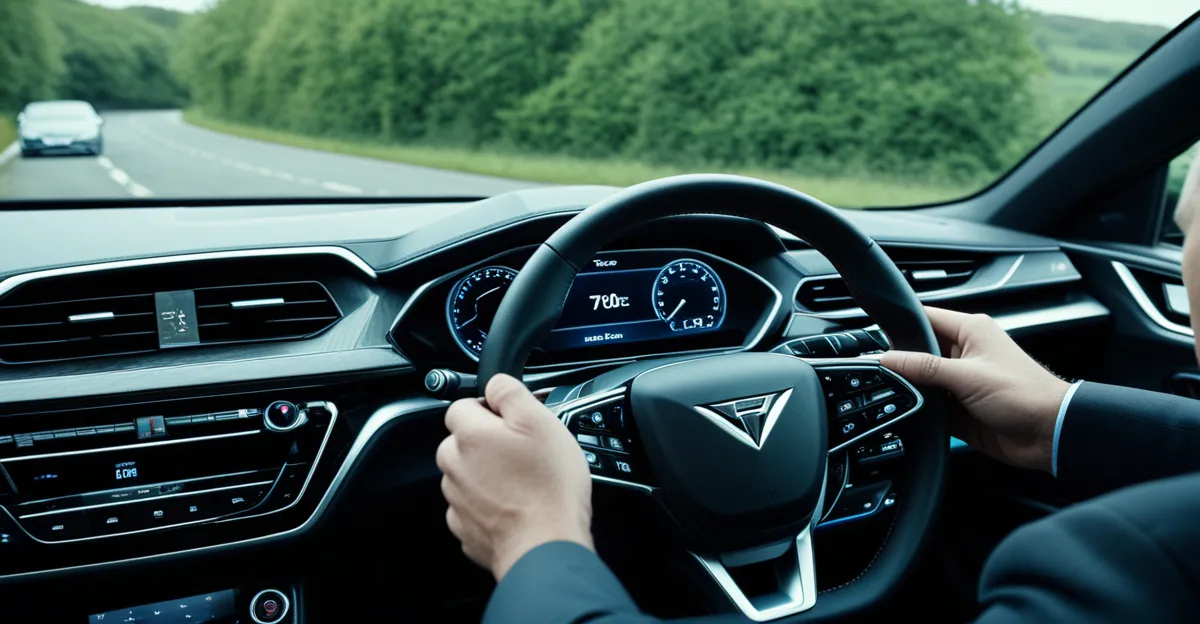Major Technological Innovations Shaping the UK Automotive Industry
The automotive industry UK is undergoing rapid transformation driven by significant technological advancements. A primary innovation is the accelerated adoption of electric vehicles (EVs). With government incentives and increased consumer demand, EVs are reshaping the market, reducing reliance on fossil fuels, and prompting manufacturers in the automotive industry UK to invest in battery technology and charging infrastructure.
Simultaneously, advances in automotive automation and self-driving technology are becoming central. The development of semi-autonomous and fully autonomous vehicles demonstrates progress in driver-assist systems, radar, and AI, positioning the UK as a competitive player in next-generation vehicle technology.
Have you seen this : How Could the UK Automotive Industry Transform to Meet Future Demand?
Connectivity is another vital area. Innovations in automotive focus on smart car technology that integrates internet connectivity, enabling features like real-time navigation, vehicle-to-vehicle (V2V) communication, and enhanced safety functions. This connectivity not only improves user experience but also supports emerging trends such as predictive maintenance and fleet management.
Together, these innovations in the automotive industry UK indicate a dynamic shift towards cleaner, smarter, and more automated vehicles, reflecting both current demands and future possibilities.
Additional reading : How Can the UK Automotive Industry Tackle Emerging Environmental Challenges?
Impact of Technological Advancements on UK Manufacturing Processes
Technological advancements are revolutionizing manufacturing processes within the automotive industry UK. One significant innovation is the widespread implementation of robotics and automation in production lines. These technologies enhance precision and efficiency, reduce human error, and increase output consistency. For instance, robotic arms now perform complex welding and assembly tasks faster than ever before.
Another key innovation is the introduction of 3D printing and digital prototyping. These methods accelerate product development cycles by allowing rapid design adjustments and cost-effective production of prototype parts. This flexibility encourages experimentation and innovation, ultimately improving vehicle quality and customization options.
Sustainable manufacturing practices are also gaining ground, driven by industry modernization efforts. Companies incorporate energy-efficient systems, recycling methods, and use of eco-friendly materials to reduce the environmental footprint of production processes. This shift aligns with broader goals in the automotive industry UK to promote greener technologies and support the transition to electric vehicles. Together, these developments demonstrate how innovations in automotive manufacturing are crucial for competitiveness and environmental responsibility.
Effects on Employment, Workforce, and Skills in the Sector
The automotive workforce UK is experiencing a profound transformation fueled by ongoing technological advancements in the sector. As innovations in automotive bring automation and digital tools to the forefront, traditional roles are evolving, demanding new technical competencies. For example, assembly line workers increasingly need skills in robotics operation and maintenance.
Training and reskilling initiatives have become essential to equip employees for these changes. Programs tailored to the automotive workforce UK focus on programming, systems diagnostics, and software integration, ensuring that workers can adapt effectively to new manufacturing and vehicle technologies.
Moreover, emerging job opportunities reflect this shift. Positions in electric vehicle battery management, AI systems development, and connected car technology are expanding rapidly. These roles require a blend of engineering expertise and IT knowledge, underscoring the industry’s growing reliance on interdisciplinary skill sets.
This dynamic landscape challenges employers to balance workforce transitions while capitalizing on the benefits of advanced automotive technology UK. Long-term success depends on continuous investment in skill development to sustain this evolving sector.
Benefits and Challenges of Automotive Technological Advancements in the UK
Technological advancements in the automotive industry UK bring substantial environmental benefits. By promoting the adoption of electric vehicles and cleaner energy sources, these innovations in automotive are crucial for emissions reduction. Cleaner technologies directly support the UK’s goals to lower air pollution and combat climate change.
However, the integration of advanced automotive technology UK faces considerable challenges. Developing the necessary infrastructure, such as expansive charging networks for EVs, remains a hurdle. Without adequate charging points, consumer adoption may slow, limiting the sector’s environmental impact.
Cybersecurity and data privacy concerns also arise from increased vehicle connectivity. Smart cars generate vast amounts of data, making the industry responsible for safeguarding sensitive information. Addressing potential vulnerabilities is essential to maintain consumer trust and prevent malicious attacks.
Despite these challenges, the benefits of automotive innovations strongly encourage continued investment. Enhanced energy efficiency, safer roadways through automation, and smarter mobility solutions offer significant social and economic advantages as the UK steers toward a sustainable, technologically advanced automotive future.
Real-World Examples: Leading UK Automotive Innovations
The automotive industry UK features prominent examples of successful innovations in automotive that illustrate its dynamic evolution. Major UK manufacturers like Jaguar Land Rover and Nissan lead the way by integrating cutting-edge automotive innovation in electric vehicle (EV) development and autonomous driving. For instance, Jaguar Land Rover’s research into EV battery efficiency underscores the UK’s commitment to sustainable transport.
Collaborations between automakers and technology firms amplify this progress. Partnerships with AI developers and tech startups drive advances in automotive technology UK, particularly in self-driving systems and connected car platforms. These cooperative ventures enhance safety features and enable real-time data exchange, which is critical for the growing smart mobility ecosystem.
Pilot projects in UK cities further demonstrate practical applications. For example, trials of autonomous buses and vehicle-to-infrastructure communication in urban areas reflect the country’s proactive approach to integrating innovations in automotive at a community level. These initiatives also provide valuable insights into consumer interaction with new tech, paving the way for broader adoption.
Such real-world cases vividly showcase how the automotive industry UK leverages innovation to maintain global competitiveness and fulfill evolving transportation demands.
Future Trends in UK Automotive Technology
Looking ahead, the future of automotive UK is set to be shaped by several transformative trends in automotive technology. A significant trend is the expected growth of electric and hydrogen vehicles. As battery technologies improve and hydrogen fueling infrastructures expand, these alternative energy vehicles promise cleaner, faster refueling options compared to conventional fuels, supporting sustained emissions reduction goals.
Connectivity continues to evolve, with advances in vehicle-to-infrastructure (V2I) communication playing a crucial role. This technology enables cars to interact with road systems, traffic signals, and other vehicles, enhancing safety and traffic efficiency. Enhanced connectivity is also integrating AI for better predictive maintenance and adaptive driving assistance, key aspects of the sector’s evolution.
Additionally, government policy and increasing investment are powerful drivers of change. Regulations favoring low-emission vehicles combined with growing consumer acceptance accelerate adoption rates. This combined momentum encourages manufacturers to innovate aggressively, ensuring that the automotive sector evolution aligns with environmental targets and market demand.
These trends forecast a dynamic period for the automotive industry UK, marked by smarter vehicles, greener energy options, and digital integration that together redefine transportation for the future.








